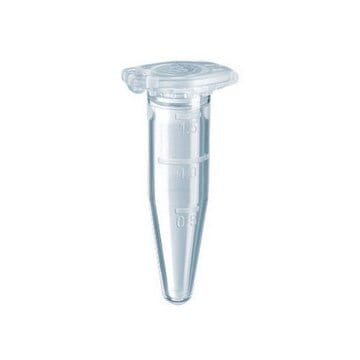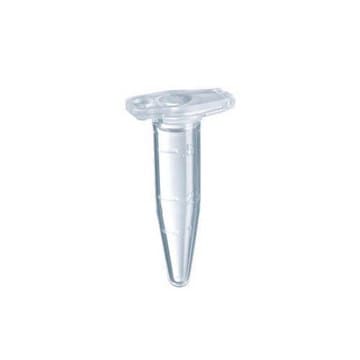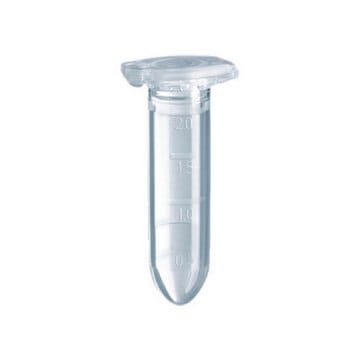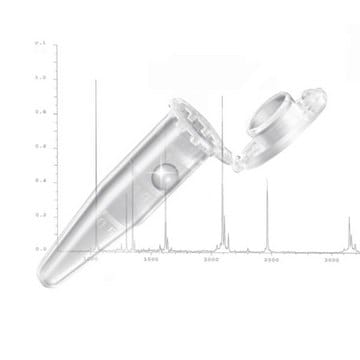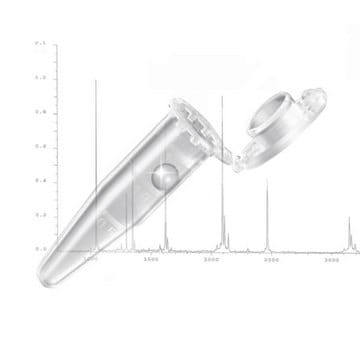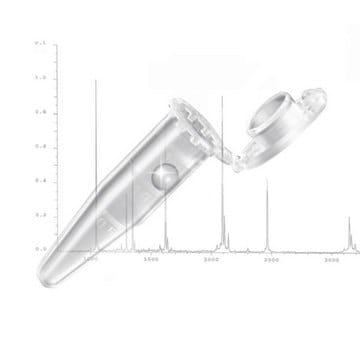EP022431102
Eppendorf® Protein LoBind tubes
capacity 2.0 mL, PCR clean, pkg of 100 ea (2 x 50ea)
About This Item
Productos recomendados
Materiales
(push fit)
polypropylene cap
esterilidad
non-sterile
Características
PCR clean
envase
pkg of 100 ea (2 x 50ea)
fabricante / nombre comercial
Eppendorf® 022431102
Parámetros
-18,000 × g max. RCF
capacidad
2.0 mL
Diámetro
10.5 mm
color
clear
idoneidad
suitable for PCR
tipo de unión
low binding surface
¿Está buscando productos similares? Visita Guía de comparación de productos
Descripción general
- Eppendorf LoBind material ensures optimized sample recovery for improved assay results
- Free of surface coating (e.g., silicone) to minimize the risk of sample interference
- Lot-certified PCR clean purity grade: free of human DNA, DNase, RNase and PCR inhibitors
- Available in tube, microplate, and deepwell plate formats for easy-up scaling
- Precise lid sealing to minimize evaporation
Características y beneficios
Información legal
Elija entre una de las versiones más recientes:
Certificados de análisis (COA)
It looks like we've run into a problem, but you can still download Certificates of Analysis from our Documentos section.
Si necesita más asistencia, póngase en contacto con Atención al cliente
¿Ya tiene este producto?
Encuentre la documentación para los productos que ha comprado recientemente en la Biblioteca de documentos.
Nuestro equipo de científicos tiene experiencia en todas las áreas de investigación: Ciencias de la vida, Ciencia de los materiales, Síntesis química, Cromatografía, Analítica y muchas otras.
Póngase en contacto con el Servicio técnico